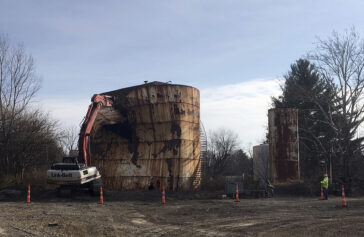Sept. 08, 2017
Best of the Week — First Winner
Toxic waste sites flooded; AP on the scene ahead of EPA
Hurricane Harvey inundated homes, flooded freeways and swamped entire neighborhoods. Florida-based reporter Jason Dearen, who was deployed to Houston to help cover the disaster, knew there might be something else submerged beneath the turbid floodwaters. Superfund sites, some of the nation’s most contaminated places, are scattered along the low-lying Gulf coastline, including in the Houston area.
Dearen had been trying to obtain a copy of a federal study about the risks of flooding at those sites from the U.S. Environmental Protection Agency, but had been stonewalled for two weeks. Harvey’s destruction provided new urgency to his request. For help, he reached out to Washington investigative reporter Michael Biesecker, a fellow member of the AP’s environmental beat team.
Through creative reporting that relied on data, collaboration and Dearen’s newfound skills as a boat man, they became the first journalists to report on the extent of flooding at contaminated waste sites in and around Houston. The on-site observations by Dearen and freelance 360-video producer Claudia Prat raised concerns that some of the decades-old toxic stew left over from the oil, gas and chemical industries may have mixed with floodwaters. They also were on the ground – and on the water – before the EPA’s own inspectors. For their efforts, Dearen, Biesecker and Prat win Beat of the Week.










